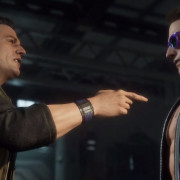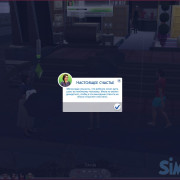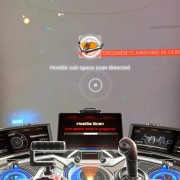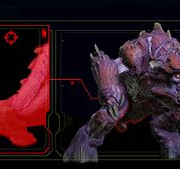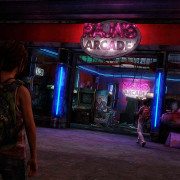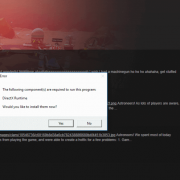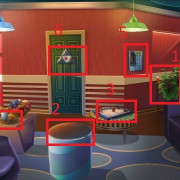Ukraine
Содержание:
Politics[edit]
Braziledit
Brazil and Ukraine are strategic partners and cooperate in trade, space technology, education, energy, healthcare, and defense. Brazil recognized Ukraine's independence on December 26, 1991, and bilateral relations were established on February 11, 1992. The recent development of a joint space industry has strengthened the bilateral ties between the two countries. Ukraine considers Brazil its key trade partner in Latin America and has been a vocal supporter of the Brazilian bid for a permanent seat at the United Nations Security Council.
Singaporeedit
- Singapore recognized Ukraine’s independence on January 2, 1992.
- Singapore is represented in Ukraine through its embassy in Moscow (Russia).
- Since December 2002, Ukraine has an embassy and an honorary consulate in Singapore.
- In 2007, the two countries commenced negotiations for a free trade agreement. In 2006, Ukraine was Singapore’s 55th largest trading partner last year, with total trade amounting to S$774 million
- In 2007, the two countries signed a double taxation agreement.
WIP
Description[edit]
Appearanceedit
Ukraine is usually seen wearing a hoodie of some sort, often with their flag colours, blue and yellow. White is also a common hoodie colour. Other tops can be sweaters or just any loose clothing in general. The Ukrainian wreath is also a very common accessory, with many different flowers and designs, popular ones being yellow flowers or poppies. Male and female versions are very common, so there’s not really a gender that is “generally accepted”. Female interpretations wearing traditional clothing is also seen. Generally fans portray the UPA (Ukrainian Insurgent Army) As a second personality of Ukraine or a brother . He is depicted as the «madman» of Ukraine. His flag is represented by red and black and usually wearing a military outfit
Personalityedit
Ukraine can be very nice and caring, but also be bitter, snarky, and very stubborn and/or determined. They can also be very nationalistic and proud, and will always try to do what they feel what’s best for them and their people. It can be very easy to rile them up. They try to be positive, but can sometimes that can be hard.
Interestsedit
- Nature (Emphasis on flowers)
- Christian Orthodoxy
- Football (Soccer)
- Boxing
- Basketball
- Cooking
- Mushrooms
- Music (Ukrainian Folk, Classical, Modern Rock Especially)
Other Symbolsedit
Coat of arms of Ukraineedit
The state coat of arms of Ukraine (Ukrainian: Державний Герб України / Derzhavnyi Herb Ukraiyny), officially referred to as the Sign of the Princely State of Volodymyr the Great (Constitution of Ukraine, Article 20) or commonly the Tryzub (Ukrainian: Тризуб, «trident»), is the national coat of arms of Ukraine, featuring the same colors found on the Ukrainian flag; a blue shield with a gold trident. It appears on the Presidential Standard of Ukraine. Blue-coloured tridents are considered to be an irregular representation by the Ukrainian Heraldry Society. The small coat of arms was officially adopted on 19 February 1992, which is not yet officially adopted.
Etymologyedit
The mainstream view interprets the name Ukraina from Russian in the sense borderland, frontier region, marches etc. These meanings can be derived from the Proto-Slavic noun *krajь, meaning edge, border.
While some Ukrainian scholars, beginning in the 1930s, have interpreted the term Ukraina in the sense of region, principality, country.
Opinions[edit]
Belarusedit
Russia’s sibling or friend, Belarus, is extremely close to them, some of the people who don’t headcanon them as family-related would ship them, in Belarus most people speak Russian, they take lots of inspiration from Russia, however this type of relationship has given Belarus a sort of «rebellious»/break-away mentality to be more Belarusian and they’re trying to get back to their own culture, but they’re for the foreseeable future, will always be by Russia’s side they will always be at their corner cheering them own like a cheerleader.
Ukraineedit
Ukraine and Russia have a very rocky relationship. They have had ‘sibling rivalry’ since the days of Russian Empire. It got especially bad during the times of the U.S.S.R due to the starvation of the Ukrainian people and the Chernobyl accident. The two countries Relations only worse after the annexation of Crimea.
North Koreaedit
Russia was one of the few countries that interacted with the DPRK after the Korean war. North Korea idolized the U.S.S.R taking lots of inspiration from him early on and is one of North Korea’s few friends. However, North Korea’s nukes and recent behavior has made Russia step back a little, along with China.
Serbiaedit
Serbia and Russia have a strong diplomatic relationship. Both countries have the same religion and the same struggles. Russia often gives military supplies to help Serbia’s army become stronger. They both hate N.A.T.O and America. Serbia is often portrayed as the younger, smaller brother/sister.
Germanyedit
Russia helped liberate Germany in 1812–15 in the Napoleonic Wars, and the two were generally friendly for a century, especially during the time of Otto von Bismarck who established the League of Three Emperors in 1873 with Russia, Germany, and Austria-Hungary. Germany fought against Russia in World War I (1914–1918). Relations were warm in the 1920s, very cold in the 1930s, friendly in 1939–41, and then turned into war to the death in 1941–45.The relationship between the two countries became really negative after the annexation of Crimea.
Mongoliaedit
Celebrates victories days together. And drinks on the celebration day. Mongolia has also had a lot of influence from Russia and the U.S.S.R. The two are close friends
I recently found out that you have depression issues like me, so we’re together
–Russia’s thoughts about Portugal
Opinions[edit]
Russiaedit
Many people in the fandom depict Ukraine and Russia to be very close siblings, with Ukraine joking about Russia’s significant other, usually the United States and overall being younger sibling to a Anime protagonist, making them kiss and try to make them get together. With Russia being loving and careful big brother who can go a little too far when someone dares to touch Ukraine.
In reality, Russia and Ukraine despise each other. Russia is very possessive doesn’t hesitate to fight them so they can isolate them from the other countries with Ukraine trying to escape his grasps and lean closer to the West and bullies Ukraine relentlessly.
Especially in case of the Crimean Crisis. In Ukraine’s eyes, Russia illegitimately took Crimea in a rigged election in 2015 and is also occupying them. After Russia SFSR gave Ukrainian SSR the region to commemorate 300 year anniversary of the Treaty of Pereyaslav in 1654, where the Zoporozhian Cossacks pledged allegiance to the Tsar and made them closer. After the fall of the U.S.S.R, Crimea wanted to be its own country, obviously making the new country unhappy. Due to Russia being the successor state of the U.S.S.R, they received the Warships of the Soviet Union, meaning they had the Black Sea fleet, which was in Sevastopol, Ukraine. The two agreed to let Russia’s ships on the peninsula for oil. Crimea was always in high demand since ancient times, having access to the Anatolian Peninsula, the Balkans, the Caucasus region, Eastern Europe, and the Mediterranean sea and with NATO expanding, Ukraine really wanted to join all of the Western Europe leaning clubs, but in 2013, the government of Ukraine decided to suspend the signing of the association agreement with the European union which sparked the Euro Maiden 2013-2014 protests, which caused the overthrow of the government. In Russia’s eyes the protests were an illegal coup, to remove their leverage in Ukraine. Ukraine doesn’t know what to do, including Crimea. Pro-Russian and Pro-Western Europe protests escalated into violence and Russia took this chance to march unmarked troops into the peninsula holding a referendum in if they want to join Russia again. The region overwhelmingly voted too, supposedly. And with this, Russia was kicked out of G8 and was slammed withsanctions.
Georgiaedit
Georgia has always had close relations with Ukraine and if the U.S.S.R. is depicted as both of their fathers, they’re quite close siblings. Depending on your head-canon, the ship Georgia × Ukraine is also gaining in popularity , it seems related to the fact that both of them feel the pain of the other in addition to their continued support for each other, whether this is political or economic so that their people express their union and solidarity in light of the crisis they face, both of whom bear grudge and hatred towards Russia for occupying their territories (Russia occupied Crimea, parts of Donetsk and Luhansk Oblasts who are Ukrainian regions and he also occupied Abkhazia and South Ossetia who are Georgian regions),
Malaysiaedit
Among to first recognize Ukraine, Ukraine impressed with the Malaysia Islamic affair. Malaysia claims that Crimea supposes to be with Ukraine. The crash of MH17 is the only time their relationship deteriorating as there was a battle between Ukraine army and rebel, as both sides to be blamed which is Ukraine and Russia (since AA missile used by rebel were provided by Russia) but became too positive afterward.
Foundation of the Kievan state[edit]
Rurik led the Rus’ until his death in about 879, bequeathing his kingdom to his kinsman, Prince Oleg, as regent for his young son, Igor.In 880–82, Oleg led a military force south along the Dnieper river, capturing Smolensk and Lyubech before reaching Kiev, where he deposed and killed Askold and Dir, proclaimed himself prince, and declared Kiev the «mother of Rus’ cities.»Oleg set about consolidating his power over the surrounding region and the riverways north to Novgorod, imposing tribute on the East Slav tribes.In 883, he conquered the Drevlians, imposing a fur tribute on them. By 885 he had subjugated the Poliane, Severiane, Vyatichi, and Radimichs, forbidding them to pay further tribute to the Khazars. Oleg continued to develop and expand a network of Rus’ forts in Slav lands, begun by Rurik in the north.
Mongolian invasionedit
The Mongol conquest of Kievan Rus’ was part of the Mongol invasion of Europe, in which the Mongol Empire invaded and conquered Kievan Rus’ and other Russian principalities in the 13th century AD, destroying numerous cities, including Ryazan, Kolomna, Moscow, Vladimir and Kiev.The campaign was heralded by the Battle of the Kalka River in May 1223, which resulted in a Mongol victory over the forces of several Rus’ principalities. The Mongols retreated, having gathered their intelligence which was the purpose of the reconnaissance-in-force. A full-scale invasion of Rus’ by Batu Khan followed, from 1237 to 1242. The invasion was ended by the Mongol succession process upon the death of Ögedei Khan. All Rus’ principalities were forced to submit to Mongol rule and became vassals of the Golden Horde empire, some of which lasted until 1480.
The invasion, facilitated by the beginning of the breakup of Kievan Rus’ in the 13th century, had incalculable ramifications for the history of Eastern Europe, including the division of the East Slavic people into three separate nations: modern-day Russia, Ukraine and Belarus, and the rise of the Grand Duchy of Moscow.
Invasion of Batu Khan
The vast Mongol (Tartar) army of around 40,000 mounted archers, commanded by Batu Khan and Subutai, crossed the Volga River and invaded Volga Bulgaria in late 1236. It took them only a month to extinguish the resistance of the weak Volga Bulgars, the Cumans-Kipchaks and the Alans.In November 1237, Batu Khan sent his envoys to the court of Yuri II of Vladimir and demanded his submission. A month later, the Tartar hordes besieged Ryazan. After six days of bloody battle, the city was totally annihilated and inhabitants slaughtered. Alarmed by the news, Yuri II sent his sons to detain the invaders, but they were defeated and ran for their lives. Having burnt down Kolomna and Moscow, the horde laid siege to Vladimir on February 4, 1238. Three days later, the capital of Vladimir-Suzdal was taken and burnt to the ground. The royal family perished in the fire, while the grand prince retreated northward. Crossing the Volga, Vladimir mustered a new army, which was encircled and totally annihilated by the Mongols in the Battle of the Sit River on March 4.Thereupon Batu Khan divided his army into smaller units, which ransacked fourteen cities of modern-day Russia: Rostov, Uglich, Yaroslavl, Kostroma, Kashin, Ksnyatin, Gorodets, Galich, Pereslavl-Zalessky, Yuriev-Polsky, Dmitrov, Volokolamsk, Tver, and Torzhok. Chinese siege engines were used by the Mongols under Tului to raze the walls of Rus’ cities. The most difficult to take was the small town of Kozelsk, whose boy-prince Vasily, son of Titus, and inhabitants resisted the Mongols for seven weeks, killing 4,000.
WIP
==Politics==
Ukraineedit
Russia and Ukraine have a bilateral relation between the Russian Federation and Ukraine. The bilateral relationship between Russia and Ukraine formally started in the 1990s immediately upon the dissolution of the Soviet Union, of which both Russia and Ukraine had been founding constituent republics.
Interactions between the two areas of Russia and Ukraine developed on a formal basis from the 17th century (note the Treaty of Pereyaslav between Moscow and Bohdan Khmelnytsky’s cossacks in 1654), but international-level relations ceased when Catherine the Great liquidated the autonomy of the Cossack Hetmanate in 1764. For a short period of time soon after the communist 1917 October Revolution two states interacted again.
In 1920, Soviet Russian forces overran Ukraine and relations between the two states transitioned from international to internal ones within the Soviet Union, founded in 1922. After the Soviet Union’s dissolution in 1991, Russia and Ukraine have undergone periods of ties, tensions, and outright hostility.
Russia[edit]
(Russian: Россия, Rossiya, Russian pronunciation: ), or the Russian Federation, is a country spanning Eastern Europe and Northern Asia. It is the largest country in the world, covering over 17 million square kilometres (6.6×106 sq mi), and encompassing more than one-eighth of Earth’s inhabited land area. Russia extends across eleven time zones, and has the most borders of any country in the world, with sixteen sovereign nations. It has a population of 146.2 million; and is the most populous country in Europe, and the ninth-most populous country in the world. Moscow, the capital, is the largest city in Europe, while Saint Petersburg is the nation’s second-largest city and cultural centre. Russians are the largest Slavic and European nation; they speak Russian, the most spoken Slavic language, and the most spoken native language in Europe.
The East Slavs emerged as a recognisable group in Europe between the 3rd and 8th centuries AD. The medieval state of Rus’ arose in the 9th century. In 988, it adopted Orthodox Christianity from the Byzantine Empire, beginning the synthesis of Byzantine and Slavic cultures that defined Russian culture for the next millennium. Rus’ ultimately disintegrated until it was finally reunified by the Grand Duchy of Moscow in the 15th century. By the 18th century, the nation had greatly expanded through conquest, annexation, and exploration to become the Russian Empire, the third-largest empire in history. Following the Russian Revolution, the Russian SFSR became the largest and leading constituent of the Soviet Union, the world’s first constitutionally socialist state, which was a one-party state throughout most of its existence. The Soviet Union played a decisive role in the Allied victory in World War II, and emerged as a superpower and rival to the United States during the Cold War. The Soviet era saw some of the most significant technological achievements of the 20th century, including the world’s first human-made satellite and the launching of the first human in space. Following the dissolution of the Soviet Union in 1991, the Russian SFSR reconstituted itself as the Russian Federation. In the aftermath of the constitutional crisis of 1993, a new constitution was adopted, and Russia has since been governed as a federal semi-presidential republic. Vladimir Putin has dominated Russia’s political system since 2000, and his government has been accused of authoritarianism, numerous human rights abuses, and corruption.
Russia is a great power, and is considered a potential superpower. It is ranked very high in the Human Development Index, with a universal healthcare system, and a free university education. Russia’s economy is the world’s eleventh-largest by nominal GDP and the sixth-largest by PPP. It is a recognised nuclear-weapons state, possessing the world’s largest stockpile of nuclear weapons, with the world’s second-most powerful military, and the fourth-highest military expenditure. Russia’s extensive mineral and energy resources are the world’s largest, and it is one of the leading producers of oil and natural gas globally. It is a permanent member of the United Nations Security Council, a member of the G20, the SCO, the Council of Europe, the APEC, the OSCE, the IIB and the WTO, as well as the leading member of the CIS, the CSTO, and the EAEU. Russia is also home to the ninth-greatest number of UNESCO World Heritage Sites.
Slavs[edit]
Kievan Rusedit
Kievan or Kyivan Rus’ was a loose federation of East Slavic and Finno-Ugric peoples in Europe from the late 9th to the mid-13th century,under the reign of the Varangian Rurik dynasty.The modern nations of Belarus, Russia, and Ukraine all claim Kievan Rus’ as their cultural ancestors, with Belarus and Russia deriving their names from it. Russia was ruled by the Rurikid dynasty until the 16th century. At its greatest extent, in the mid-11th century, it stretched from the White Sea in the north to the Black Sea in the south and from the headwaters of the Vistula in the west to the Taman Peninsula in the east,uniting the majority of East Slavic tribes.
Geography[edit]
At 603,628 square kilometres (233,062 sq mi) and with a coastline of 2,782 kilometres (1,729 mi), Ukraine is the world’s 46th-largest country (after South Sudan and before Madagascar). It is the largest wholly European country and the second-largest country in Europe (after the European part of Russia, before metropolitan France).
The landscape of Ukraine consists mostly of fertile plains (or steppes) and plateaus, crossed by rivers such as the Dnieper (Dnipro), Seversky Donets, Dniester and the Southern Bug as they flow south into the Black Sea and the smaller Sea of Azov. To the southwest, the delta of the Danube forms the border with Romania.
Relationships[edit]
Familyedit
* Ukraine — sibling * Bulgaria — sibling * Belarus — sibling * Slovakia — sibling * Slovenia — sibling * Serbia — cousin-sibling * Montenegro — cousin-sibling * North Macedonia — cousin-sibling * Poland — cousin-sibling * Arctic — cousin-sibling * Antarctica — child * Armenia — stepchild * Azerbaijan — stepchild * Estonia — stepchild * Finland — stepchild * Georgia — stepchild * Hungary — stepchild * Kazakhstan — stepchild * Kyrgyzstan — stepchild * Latvia — stepchild * Lithuania — stepchild * Moldova — stepchild * Tajikistan — stepchild * Turkmenistan — stepchild * Uzbekistan — stepchild * Germany — adopted child
Friendsedit
* China — "You're a great friend but you're pretty shady." * Kazakhstan — "You help me launch space rockets." * Belarus — "Great support." * Malaysia — "Let me get you into space! And blame Ukraine that she destroy your plane, not me!" * Costa Rica — "b a n a n a s" * Egypt * Serbia — "Great friend, keep doing that!" * Greece and Cyprus — "Best friends in the European Union!" * Iceland * Mongolia — "My cute little buddy." * Algeria — "great strategic partner, we can be competitors sometimes, however, they're always my dear close comrade." * Morocco * Tunisia * Laos — "a great friend since WWII!" * Cuba — "same with Laos." * Philippines — "Glad that you finally know not to get involved with them. Also, you have the best president!" * Vietnam — "a great friend! I helped him win against the capitalist!" * Cambodia * South Africa - “You’re one of my best friends! I’m glad we’re allies and I hope we can still carry on being like this.”
Neutraledit
* Austria — "Good friend and one of the best Natural gas deliveries in Europe!" * Azerbaijan — "Yes we are friends but, I think you must end the conflict in Nagorno-Karabakh." * Denmark * Germany — "You were one of the nicest European countries to me. But after the annexation of Crimea, you no longer want to be friends." * France — "Not really a good friend. We've had our differences." * Portugal * Czech Republic — "I know what my I did to you and your sibling and that you're hurt, and I'm sorry for that. I actually like your drinks." * Bulgaria — "You really changed..." * Romania * Slovakia * South Korea — "I damaged you, but now I like your chocolate pie and Dokdo was invaded in our country, I'm sorry." * Norway * Finland - "I'm sorry for what happened in the winter war. Nowadays we're chill" * Hungary * Ireland * Italy, Portugal, and Spain — "We have a strong affectionate relationship and I want us to continue maintaining it!" * Turkey * European Union * NATO
Enemiesedit
* Belgium * Canada * Estonia * Latvia * Lithuania * Sweden * Poland * Ukraine — "We have a so called 'sibling rivalry' for centuries now. We've had our differences and had many conflicts. Crimea is mine by the way, they chose to be with me so accept that." * United Kingdom * United States — "We've been enemies for as long as I can remember. We could've been close friends if it weren't for that missile of yours launched and blow up my city. Also, stop getting involved into the things you're not supposed to be. Your 'helping' of yours is making it worse so stop!" * Netherlands * Georgia * Kosovo — "You're not a real country, Kosovo is Serbia!" * Chechen Republic of Ichkeria — "I beat you!"
Puppet Statesedit
(list of assumed puppet states)
- Abkhazia
- South Ossetia
- Tranistria
- Artsakh (Armenia-Azerbaijan)
- Donetsk People’s Republic
- Luhansk People’s Republic
Past Versionsedit
* Old Great Bulgaria * Khanate of Khazar * Mongol Empire (partly) * Kievan Rus * Volga Bulgarian * Novgorod Republic * Northern Mughal State * Grand Duchy of Vladimir * Muscovite Russia * Tsardom of Russia * Russian Empire * Democratic Federal Republic of Russia * Soviet Federal Republic * Russian State * Third Reich (partly) * USSR/Russian SFSR (enemy)
Trivia[edit]
- Russia and Germany are usually represented as two tragic countries that have suffered the darkest dictatorships of the twentieth century in Europe (Third Reich and USSR). However, in their respective future versions, Germany is positively represented while Russia is negatively represented.
- Some fans assume that Russia’s parent is France. Probably, despite the traditional rivalry between the two countries, due to similarities with their respective revolutions.
- They’re mostly depicted with vodka, a stereotypical drink associated with Russia.
- In Russia, the death rate exceeds the birth rate.
- Some describe Russia as a suicidal person due to the fact that suicide rates are very high, as they recorded the second-highest suicide rate in WHO data after Lithuania.
- Russia is actually bigger than Pluto.
- Russia has the highest rank on global cat ownership (59%), they love cats more than anyone on the planet.
- It has 9 time zones and is the only country in the world to have so.
- A number of Russian fans began to reject that Russia is paired with many countries, particularly the United States or Mexico, and currently, they -but not all of them- only consider Serbia as the true love of Russia. These criticisms come mainly because the character Russia is precisely homophobic and is paired in gay/lesbian relationship with other countries for the mere fact of being.
- Russia Is Called the Motherland
